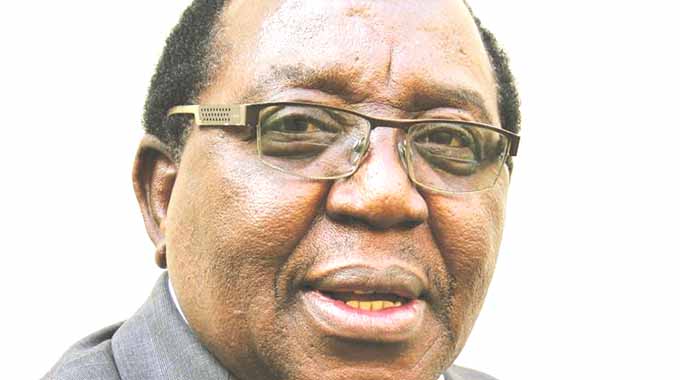World at risk of deadly pandemics

Roselyne Sachiti Features, Health & Society Editor
Since immemorial, man has been affected by disease which has wiped out communities indiscriminately creating a global health crisis.
From the worst pandemics that include the Asian flu (1956-1958); the flu pandemic of 1918; sixth cholera pandemic (1910-1911), flu pandemic 1889-1890; third cholera pandemic (1852–1860); the Black Death (1346-1353); plague of Justinian (541-542) with a death toll: 25 million; and the Antonine Plague (165 AD) which had a death toll of 5 million, man had to bear the brunt.
Fast forward to 2019, we all know someone and have read stories of thousands of people wiped out by cholera, at risk of the diarrhoeal disease because of poor water and sanitation especially on the African continent.
Stories of how the West African Ebola outbreak burdened the economies of affected countries have been told over and over, again and again. The outbreak is estimated to have knocked more than US$2 billion off the gross domestic products (GDPs) of Guinea, Liberia, and Sierra Leone, something unbearable given other diseases and challenges competing for the same resources.
Today, the world is running scared of deadly disease outbreaks with governments and international institutions being challenged to take bold steps to manage the mounting threat.
This is the stark warning of a report “A World at Risk” released yesterday (September 18, 2019) by an international group of experts, which outlines concrete actions to prepare the world for health emergencies, recognising that investing in preparedness before a crisis strikes saves lives and saves money.
Despite the increasingly dire risk of widespread epidemics, the world remains unprepared.
The Global Preparedness Monitoring Board (GPMB) warns that epidemic-prone diseases like Ebola, influenza and SARS are increasingly difficult to manage in the face of prolonged conflict, fragile states and forced migration.
At the same time, the threat of a pandemic spreading around the globe is a real one — a quick-moving pathogen has the potential to kill tens of millions of people, disrupt economies, and destabilise national security.
Climate change, urbanisation, and a lack of adequate water and sanitation are all breeding grounds for fast-spreading, catastrophic outbreaks.
“For too long, world leaders’ approaches to health emergencies have been characterised by a cycle of panic and neglect,” said Dr Gro Harlem Brundtland, co-chair of the GPMB.
“It is high time for urgent and sustained action. This must include increased funding at the community, national and international levels to prevent the spread of outbreaks. It also requires leaders to take proactive steps to strengthen preparedness coordination mechanisms across governments and society to respond quickly to an emergency.”
The report emphasises that although governments and international institutions have taken steps to increase preparedness for outbreaks since the deadly Ebola crisis in West Africa five years ago, current preparedness efforts are grossly insufficient.
The current Ebola outbreak in the Democratic Republic of the Congo demonstrates how the lack of trust between communities and authorities can undermine the response during a health emergency.
By contrast, after people infected with the virus crossed the border to Uganda this past summer, public health authorities, health care workers, and community volunteers were at the ready, with a preparedness plan in place. The cases were quickly detected and isolated before anybody else could be infected.
“The trust between communities and the institutions that serve them is at the core of an emergency response, but it is almost impossible to build trust in the middle of a crisis,” said GPMB co-chair Mr Elhadj As Sy.
“Community engagement and trust cannot be an afterthought, it has to be earned. Leaders and public health authorities must work as partners with communities to build that trust. We can’t just show up once a health crisis hits. We need to be there before, during and after,” added Mr As Sy, who is also the secretary- general of the International Federation of Red Cross and Red Crescent Societies.
The report points out how an outbreak equivalent to the 1918 influenza pandemic could kill an estimated 50 to 80 million people, spreading around the world in less than 36 hours and wiping out nearly five percent of the global economy.
In the case of a pandemic, many national health systems would collapse, with low-resourced communities hit the hardest, according to the report.
“Ebola, cholera, measles — the most severe disease outbreaks usually occur in the places with the weakest health systems,” said WHO Director-General Dr Tedros Adhanom Ghebreyesus.
“As leaders of nations, communities and international agencies, we must take responsibility for emergency preparedness, and heed the lessons these outbreaks are teaching us. We have to ‘fix the roof before the rain comes.’”
As noted in the report, some recent progress on scaling up in-country preparedness. As of July 2019, 59 countries developed a National Action Plan for Health Security, yet, none of have been fully financed.
In order to be fully prepared, all countries must create a fully costed and financed action plan, with international funders stepping in to close gaps for the poorest and most vulnerable countries.
“Poverty and fragility exacerbate outbreaks of infectious disease and help create the conditions for pandemics to take hold,” said Axel van Trotsenburg, Acting CEO of the World Bank, which is a co-convener of the GPMB along with WHO.
“Investing in stronger institutions and health systems will promote resilience, economic stability and global health security.”
In the report, the GPMB urges leaders to follow through on seven urgent actions (detailed below) to ensure the world is better prepared for the next health emergency.
It calls on heads of state and governments to increase funding for preparedness and research into new technologies, strengthen response systems across sectors and follow through on international commitments. At the international level, the GPMB calls for intergovernmental organisations, donors and multilateral institutions to build preparedness into funding mechanisms, strengthen coordination and rapid communication systems, and monitor progress continually.









Comments